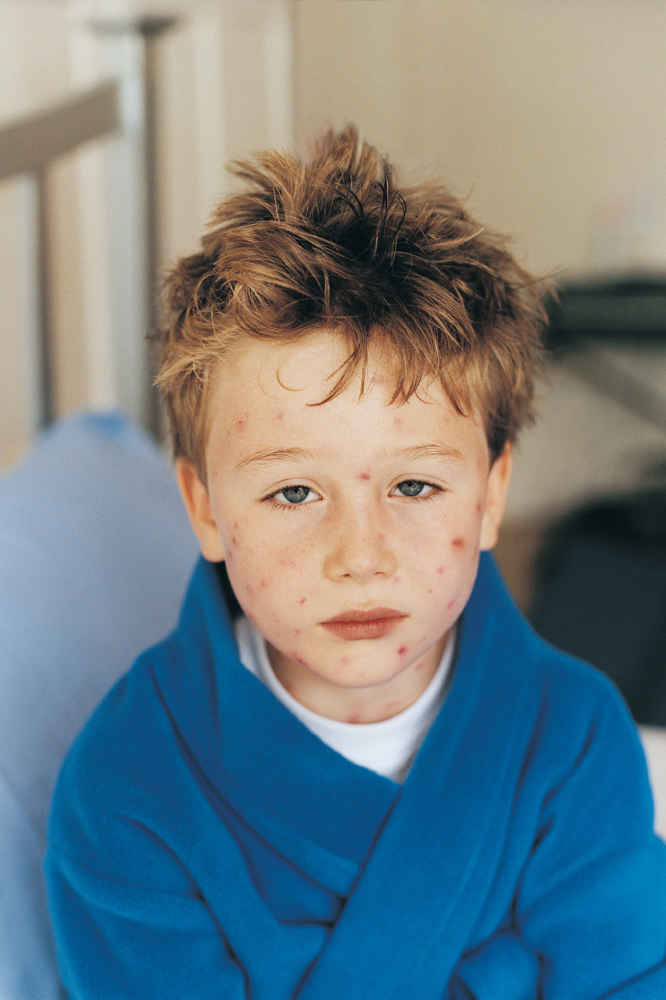
Ensure you protect your child's health and know the signs of chickenpox
Research shows nine out of 10 children in the UK will catch chickenpox, most of them before the age of four. Caused by the highly contagious virus, varicella-zoster, chickenpox results in a number of very unpleasant symptoms including an itchy rash, spots and blisters. The resulting scratching can lead to further infections, sleepless nights and permanent scarring which can be a major concern for parents.
BBC Health Correspondent and family GP Dr Sarah Jarvis says: “Chickenpox is caused by a strain of the herpes virus and is highly infectious, spreading quickly through coughs and sneezes of someone who is infected. Children usually catch chickenpox in winter or spring, particularly between March and May. Although symptoms tend to be mild, chickenpox is incredibly itchy which can be very distressing for both parent and child."
When it comes to knowing how to best manage the symptoms of chickenpox, it's important to follow expert advice. Here Dr Jarvis busts some of the common misconceptions about the illness:
Chickenpox myths revealed:
- If my child has chickenpox I should take them to the GP straightaway
MYTH. “Chickenpox in children is usually a mild disease that gets better in a few days without the need to see a GP. If you feel confident your child’s symptoms are chickenpox contact your pharmacist by telephone or visit your local chemist without your child to prevent infecting vulnerable members of the public. However, if your child is under four weeks old, has breathing difficulties, chest pains, if they become very drowsy or wobbly on their legs, can't take fluids because the rash in their mouth is severe, have a rash which bleeds or bruises under the skin, become more and more unwell or the skin blisters have become infected and look yellow or pus-filled, it is important to seek medical advice.”
- Deliberately exposing my child to the virus at a chickenpox party is a good idea
MYTH. “Research has shown that 1 in 8 parents said they would consider deliberately exposing their child to chickenpox in order to get the illness “out of the way”2. Most doctors agree this is not a good idea! Imagine if your child was the 1 in 1,000 who was admitted to hospital with complications and you had deliberately exposed them. Parents should allow their child to experience the illness naturally.”
- Giving my child aspirin will help with any discomfort and reduce their fever
MYTH. “There is no child safe version of aspirin and it should never be given to a child under 16 years old. Instead try Care Infant Paracetamol Suspension (100ml, £2.45 from independent pharmacies nationwide), which reduces fever and provides pain relief.” Ibuprofen medicines such as Care Ibuprofen for children are very effective for many childhood complaints, but it's best to avoid any form of ibuprofen in children with chicken pox
- Calamine lotion helps to ease the chickenpox itch
MYTH. “There is no clinical evidence to suggest that calamine lotion does anything to relieve the symptoms of chickenpox. Calamine lotion offers a momentary cooling effect as the liquid evaporates from the skin. However, this drying effect may exacerbate the condition and actually cause further itching. Consider using Care ViraSoothe Chickenpox Relief Cooling Gel or Spray Gel to cool the skin and relieve itching.”
- My child has been ill for five days and is still getting spots, this is not normal
MYTH. “It is completely normal for children to acquire more spots for about 7 days. The initial fever often starts a day or so before the spots come out and usually starts to settle after about three days. The spots will scab over and dry up, but may take 2 weeks to go away completely. Complications are very rare in a healthy child but if you are at all worried you should consult a doctor.”
Tagged in Health

